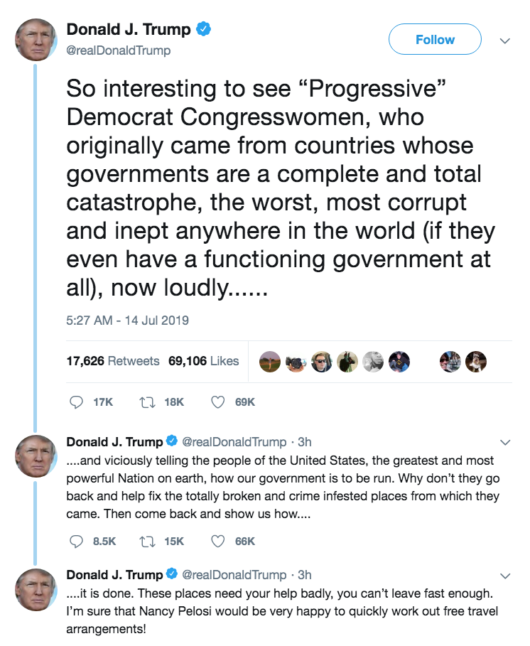In a recent Bridge post, I suggested that Congress should ask Jay Powell the following questions:
1. Do Fed officials believe that the Federal Reserve currently has adequate tools to achieve their mandate at the zero lower bound, without assistance from fiscal policy?
2. Would the Fed be more confident in its ability to achieve the dual mandate of stable prices and high employment if it were authorized to buy a wider range of assets at the zero lower bound?
3. Suppose the Fed were allowed to boost its capital by retaining several years’ worth of profits. Would this make the Fed more willing to provide adequate liquidity at zero interest rates, knowing that it is less likely to become insolvent if the assets on its balance sheet declined in value?
Yesterday, Rep. Tlaib asked Powell the following question:
What additional tools or authority do you need to prevent another downturn?
Great question!! Unfortunately, Powell didn’t provide a good answer:
I think we have the tools that we need. I think what we would hope for is support from fiscal policy.
If you are hoping for support from fiscal policy, then you most certainly do not have the tools that you need. There is no reason to expect any significant support from fiscal policy during the next downturn. The deficit has soared to nearly a trillion dollars during a boom period—does anyone seriously think Congress will run a $2 trillion deficit in the next recession? And does anyone think that a Congress where the two parties barely speak to each other will suddenly come together and agree on a tax cut during the next recession. (I’m not even considering government output, as there are basically no shovel ready projects in the modern world of infrastructure.)
And even if we did run a $2 trillion deficit, it would have little impact on GDP. Remember 2009? How about 2013?
Here’s what Powell should have said:
It would help if Congress gave us additional tools, or at the very least clarified that we were authorized to use current tools as aggressively as necessary to prevent a recession, even if that means buying unconventional assets, and even if it runs a small risk of capital losses for the Fed.
If Congress doesn’t want us to do whatever it takes to prevent the next recession at the zero lower bound, and would prefer to handle more of the load with fiscal policy, it would help if they clearly spelled out what they did expect from us. But I have to be honest with you, given the current budget deficit it’s very unlikely that fiscal policy will be effective in the next recession.
Powell did a good job discussing monetary policy, explaining why a rate cut is now appropriate.
The NYT reports that Powell is increasingly skeptical of the Phillips Curve:
Representative Alexandria Ocasio-Cortez, Democrat of New York, later asked, “Do you think it’s possible that the Fed’s estimates of the lowest sustainable unemployment rate may have been too high?”
“Absolutely,” Mr. Powell replied, adding that the Phillips curve, the statistical relationship between low joblessness and higher inflation that has been central to Fed policymaking for decades, is showing itself as but a “faint heartbeat.”
This is good news. Like all “reasoning from a price change” models, the P.C. is not reliable enough for policy purposes. The Fed needs to focus on NGDP growth, not unemployment, when looking for indicators of overheating.
I’ve been arguing that now is a perfect time for the Fed to ask for more power, as both parties would be on board with giving the Fed the tools to prevent a recession. Here’s the NYT:
It probably also helps that the Fed is now under pressure, from both conservatives and liberals, to increase economic growth.
The Fed needs to wake up.
HT: JW Mason


